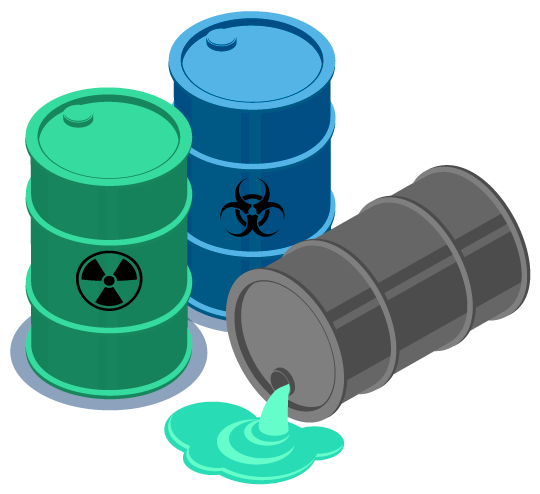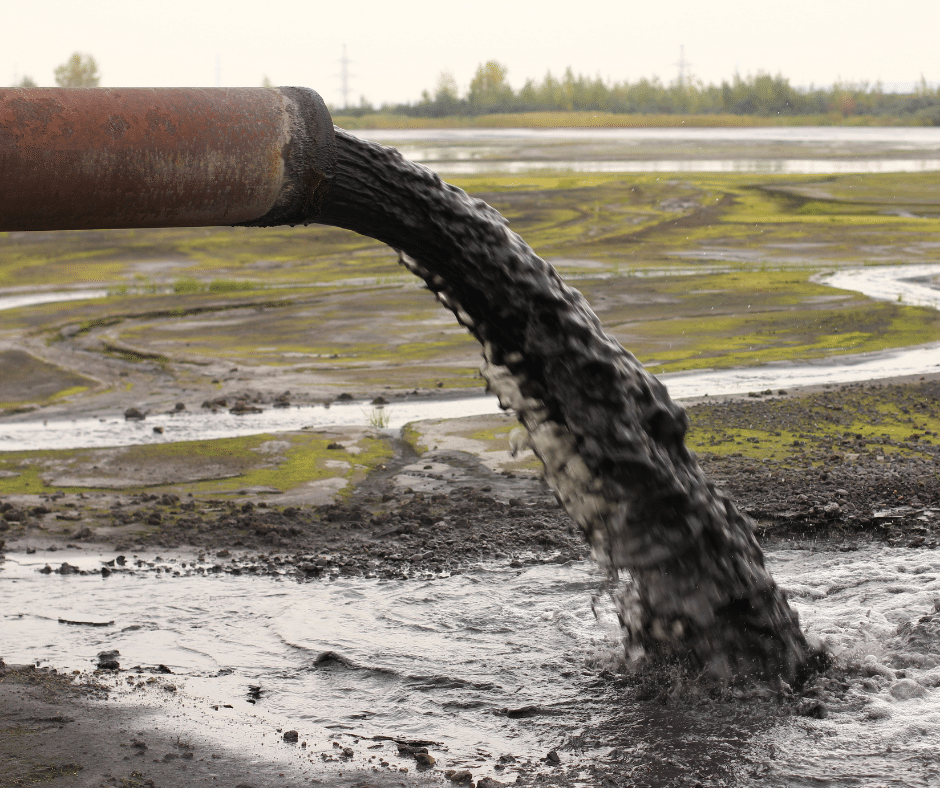Industrial Wastewater Treatment: Advanced Techniques for Effective Monitoring
Industrial Wastewater Treatment: Advanced Techniques for Effective Monitoring
Blog Article
Recognizing the Comprehensive Process of Fluid Waste Disposal: Finest Practices and Environmental Influence Considerations
The administration of liquid garbage disposal is a multifaceted issue that needs a comprehensive understanding of different best techniques and their linked environmental influences. From the sorts of fluid waste created to the approaches utilized for collection, therapy, and last disposal, each step plays an important function in safeguarding ecosystems and public wellness. As regulatory criteria advance and innovation advancements, the discussion around these procedures comes to be significantly essential. What effects do these adjustments hold for future sustainability efforts, and exactly how can stakeholders guarantee that they are appropriately dealt with?
Kinds Of Fluid Waste
Recognizing the various kinds of fluid waste is necessary for reliable administration and disposal techniques. Fluid waste can be generally categorized right into a number of types, each requiring one-of-a-kind handling and treatment strategies.
Industrial liquid waste typically has dangerous materials, including hefty steels, solvents, and chemicals, produced throughout making processes. These wastes necessitate strict regulatory compliance to secure human health and wellness and the atmosphere. Domestic fluid waste largely refers to wastewater produced from houses, including sewer and greywater, which, although less toxic, can still present significant dangers if incorrectly managed.
Agricultural liquid waste, including overflow from farms, usually contains fertilizers and pesticides that can lead to ecological destruction if not treated sufficiently. Clinical fluid waste, created from healthcare facilities, includes polluted fluids such as bodily liquids and chemicals, calling for specialized disposal approaches to stop infection and environmental contamination.
Lastly, oil and oil waste, typically created by dining establishments and auto markets, can trigger serious blockages in drain systems if not taken care of appropriately. Understanding these categories facilitates targeted techniques for treatment, compliance with regulations, and effective disposal techniques, eventually advertising ecological sustainability and public wellness safety and security.

Collection Techniques
Reliable collection methods are vital for the appropriate administration of fluid waste, ensuring that it is collected safely and effectively before therapy or disposal. Various methods are employed depending upon the kind of fluid waste created, the volume, and the details features of the waste.
One usual technique is the use of devoted collection tanks or sumps, which are created to capture liquid waste at the source. These systems typically integrate pumps that promote the transfer of waste to larger storage space containers or therapy centers. Additionally, mobile collection devices outfitted with vacuum innovation are used in circumstances where waste is created intermittently or in hard-to-reach areas.
For industrial settings, closed-loop systems can effectively decrease spills and leakages, enabling the healing and reuse of liquid waste. It is additionally necessary to educate employees on appropriate collection procedures to alleviate dangers connected with dangerous substances.
Moreover, carrying out normal upkeep timetables for collection equipment ensures ideal performance and safety and security. The integration of advanced monitoring systems can improve collection efficiency by supplying real-time data on waste degrees and prospective hazards. Overall, efficient collection approaches are fundamental to lasting fluid waste administration techniques.
Therapy Procedures
Therapy procedures play a crucial duty in the monitoring of fluid waste, transforming possibly harmful materials right into reusable resources or safe effluents - liquid waste disposal. These procedures can be broadly classified right into physical, chemical, and biological methods, each customized to resolve details pollutants existing in the waste stream
Physical treatment methods, such as sedimentation and filtering, job by getting rid of put on hold solids and particulate issue. These strategies are commonly the primary step in go to this web-site the therapy chain, effectively lowering the load on subsequent procedures. Chemical therapies include using reagents to neutralize dangerous substances, precipitate hefty steels, or oxidize organic contaminants, consequently improving the security of the effluent.
Organic treatment procedures, including triggered sludge systems and anaerobic food digestion, maximize the natural abilities of microbes his response to weaken natural issue. These methods are specifically efficient for wastewater containing eco-friendly pollutants. Advanced therapy technologies, such as membrane filtration and progressed oxidation processes, are progressively utilized to achieve higher levels of filtration.
Including a combination of these treatment methods not only makes certain compliance with regulatory criteria but likewise advertises environmental sustainability by recouping valuable sources from fluid waste.
Disposal Options
Just how can companies ensure the secure and responsible disposal of liquid waste? Reliable disposal alternatives are vital for safeguarding public health and wellness and the environment. The key methods consist of land therapy, disposal, and incineration adhered to by discharge right into metropolitan wastewater systems.
Land disposal entails the mindful control of fluid waste in marked land fills, making sure that it does not leach into bordering soil or water. Incineration, on the other hand, topics liquid waste to heats, transforming it right into ash and gases, which need proper purification to decrease emissions. This technique is suitable for hazardous wastes that can not be dealt with via conventional methods.
In instances where fluid waste can be dealt with, organizations may select chemical or biological treatment processes to reduce the effects of dangerous components prior to discharging the dealt with effluent right into metropolitan systems. This course generally straightens with regulatory requirements, making certain that the effluent fulfills security criteria.
Eventually, companies need to conduct detailed analyses of each disposal choice to identify its feasibility, thinking about aspects such as waste make-up, regulatory compliance, and prospective dangers to health and the environment. By selecting appropriate disposal techniques, organizations can add to an accountable waste monitoring method.
Environmental Impact
The environmental influence of liquid garbage disposal is a vital consideration for companies looking for to minimize their eco-friendly impact. Improper disposal methods can bring about significant contamination of water resources, dirt deterioration, and negative impacts on local ecosystems. For example, harmful liquids can seep into groundwater, positioning risks to alcohol consumption water materials and aquatic life. Furthermore, the discharge of untreated or improperly treated waste right into surface area waters can lead to eutrophication, causing oxygen deficiency and the subsequent fatality of fish and other organisms.

To mitigate these impacts, organizations have to embrace finest techniques such as implementing extensive waste treatment processes, promoting recycling and reuse, and adhering to regulatory standards. By taking a proactive method to liquid waste management, entities can dramatically minimize their environmental footprint while supporting sustainable growth objectives. Eventually, an extensive understanding of the ecological influences related to fluid garbage disposal is important for notified decision-making and accountable stewardship of natural deposits.
Verdict
Effective administration of liquid waste is crucial for protecting ecological honesty and public health and wellness. Inevitably, a comprehensive understanding of liquid waste disposal not just reduces environmental influences however also fosters a commitment to accountable source management and environmental stewardship.
The management of fluid waste disposal is a complex issue that calls for a thorough understanding of various ideal techniques and their connected environmental effects. From the kinds of liquid waste generated to the approaches utilized for collection, therapy, and last disposal, each step plays index an essential function in guarding communities and public health and wellness.The environmental influence of fluid waste disposal is an important factor to consider for organizations seeking to lessen their ecological footprint. Ultimately, a thorough understanding of the environmental impacts associated with fluid waste disposal is essential for educated decision-making and responsible stewardship of natural resources.
Ultimately, an extensive understanding of fluid waste disposal not just alleviates environmental impacts but additionally fosters a dedication to responsible source administration and ecological stewardship.
Report this page